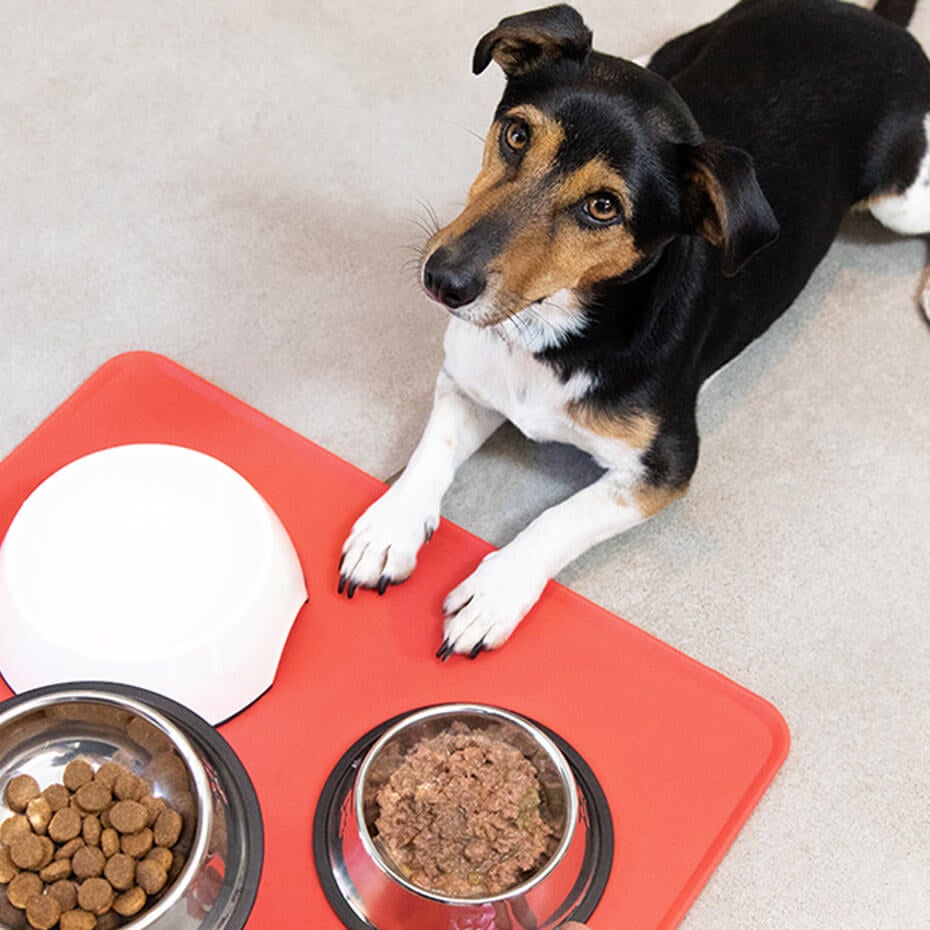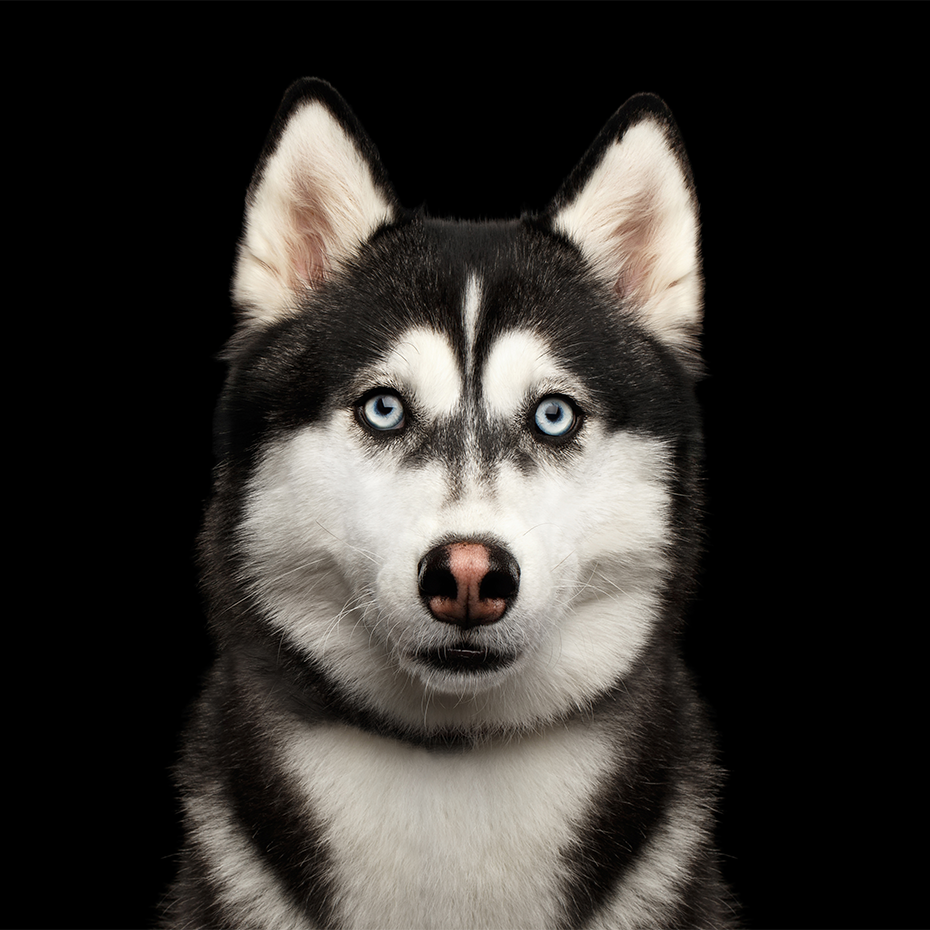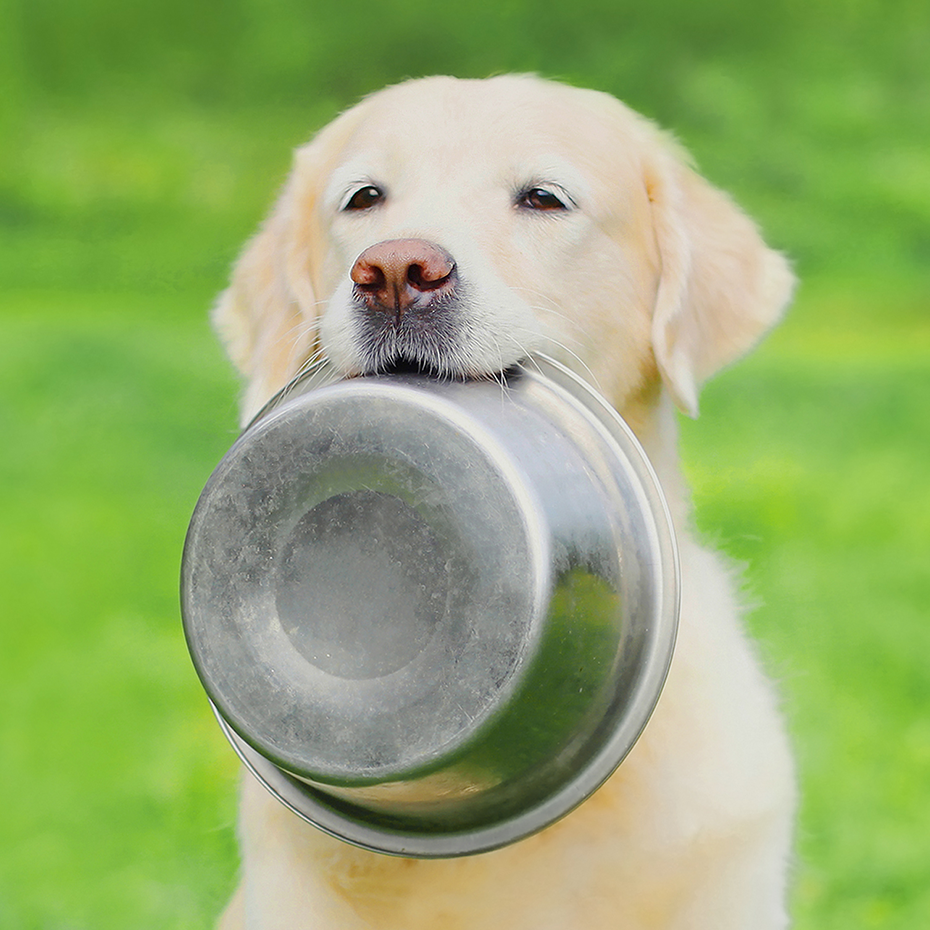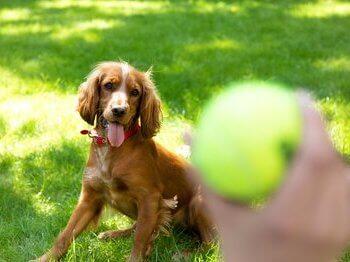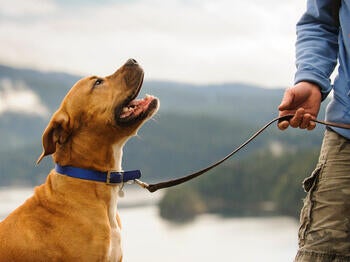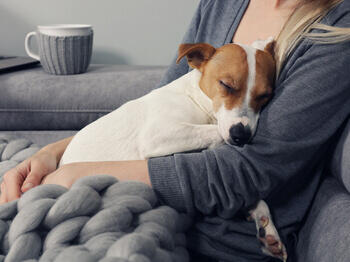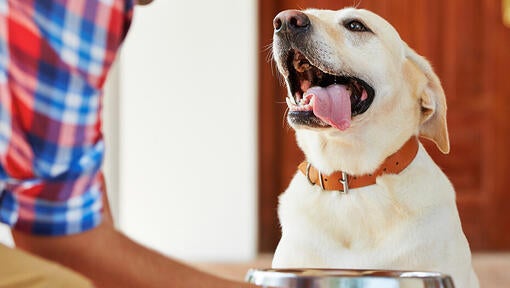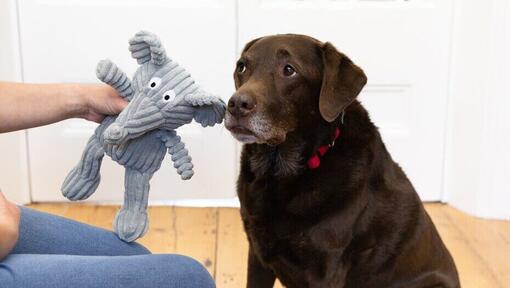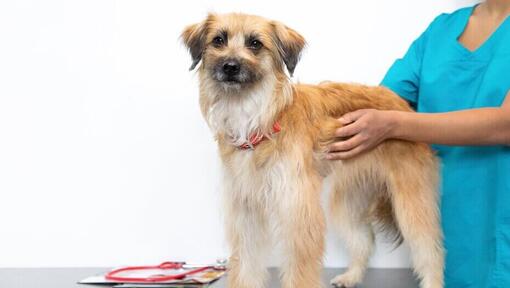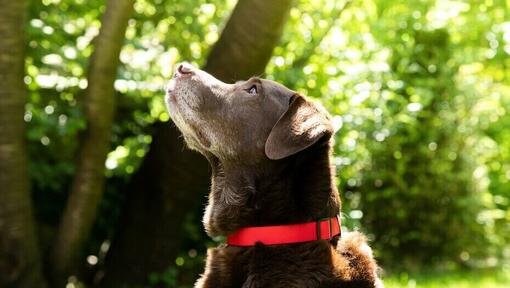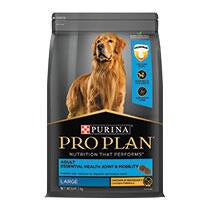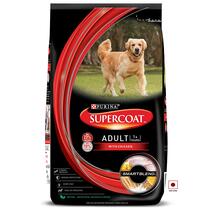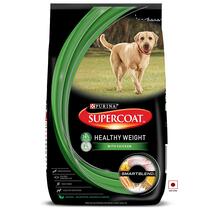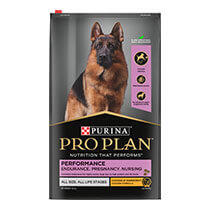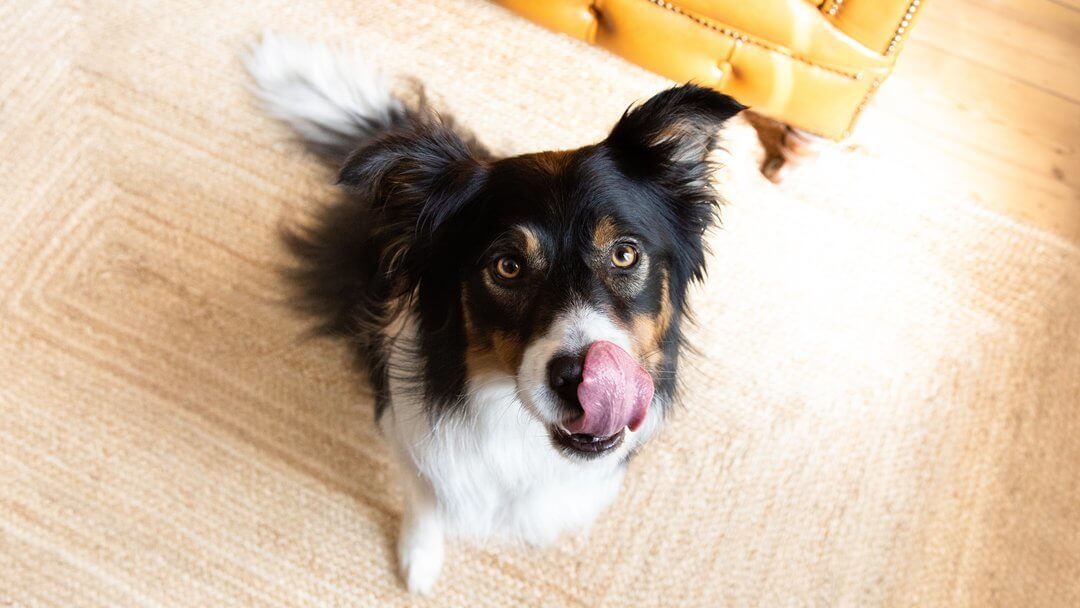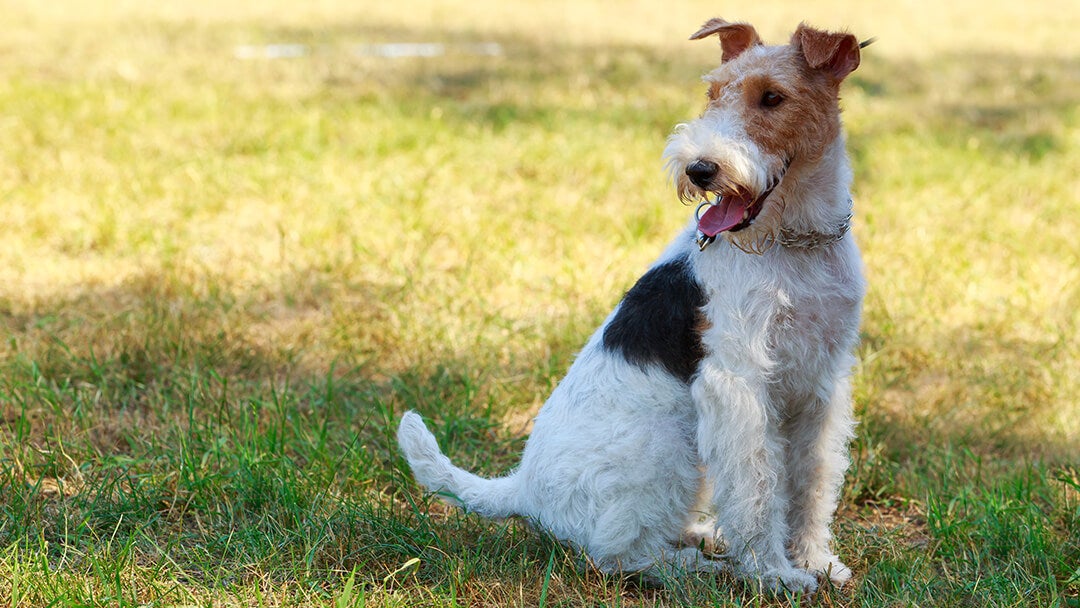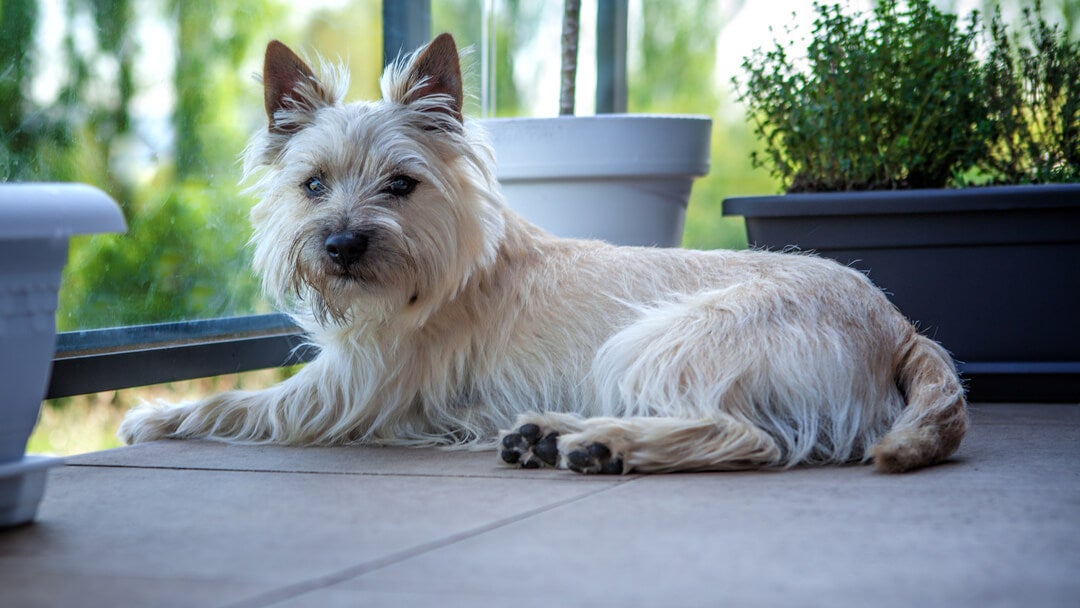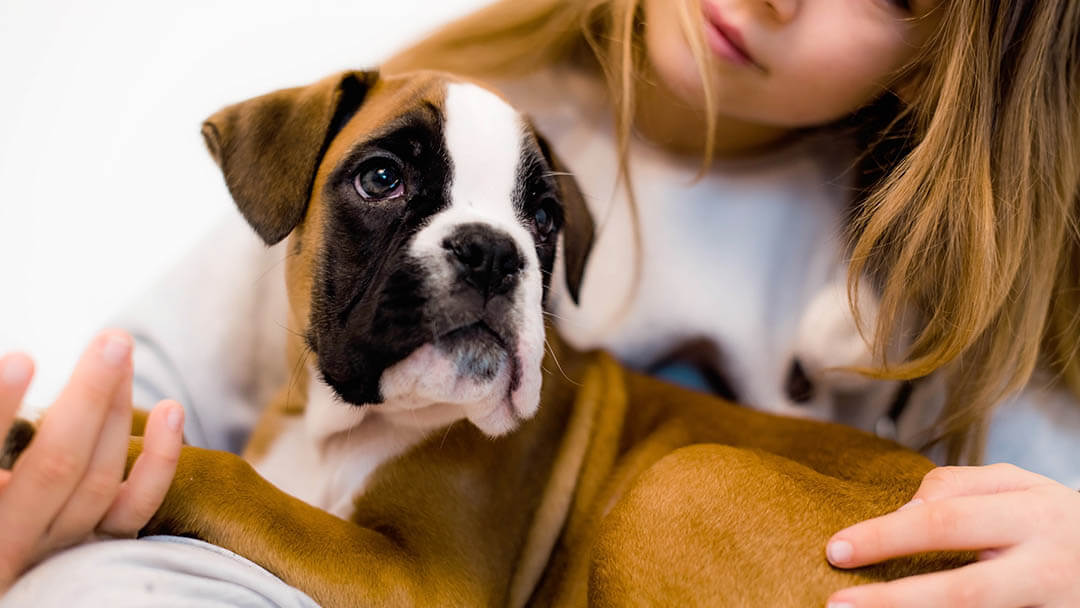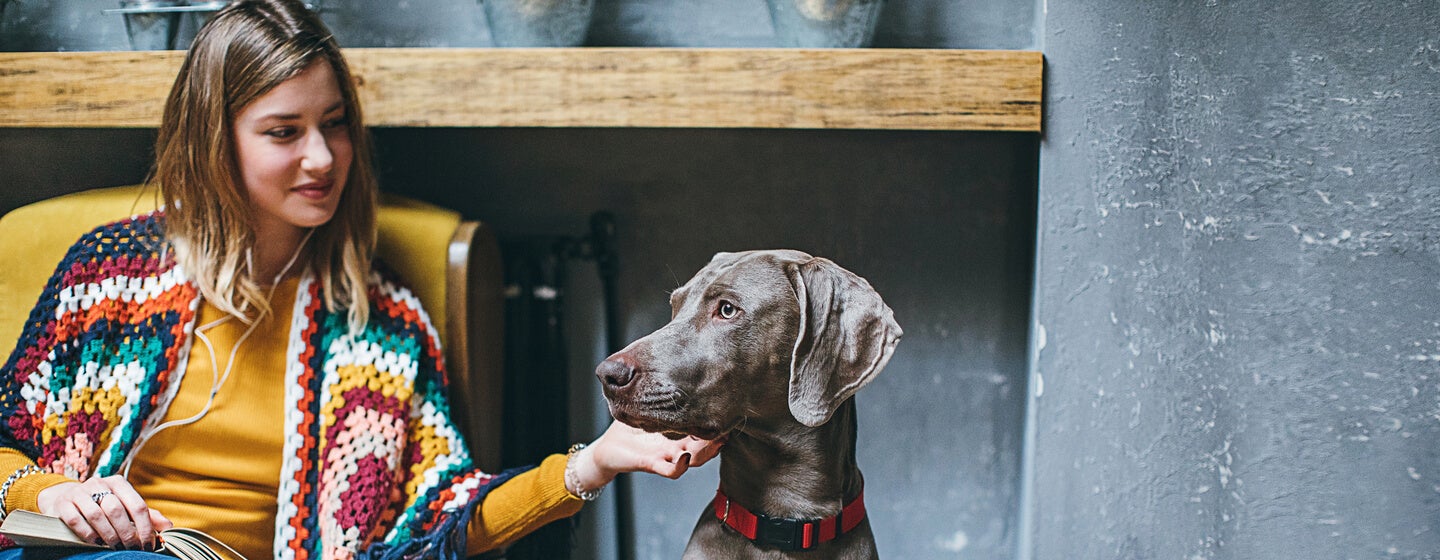
You may have noticed some grey hairs on your dog, or sensed that they’ve started to slow down a little – this is all perfectly normal as they approach their senior years.
When does my dog become a senior?
Just like us, dogs get older gradually - there’s no exact age that they become “senior”, but they can usually be considered to be of an older age between 5-9 years old. The age that your pet is considered to be “older” depends on what dog you have, as typically smaller dogs have a much longer lifespan than giant breeds.
Large and giant breeds may show signs of ageing a little earlier while small dogs, who generally live the longest, may not become senior until they’re eight or nine.
Lifestyle factors, such as diet, exercise and medical history all play a part in how long a senior dog will live, but the important thing to remember is that your later years together could be some of your most rewarding. After all, you’re both wiser as well as older!
Read our tips below on how to make the later years of your dog’s life some of their most rewarding.
Home life
Just like us, your dog will appreciate a big soft bed to snuggle into, particularly if they’ve got sore joints. Put it somewhere warm and quiet, away from draughts. Always make sure they’ve got a bowl of clean water nearby so they don’t have to search for it or take unnecessary trips up and down stairs.
When you’re out and about you may find that your senior dog isn’t as agile as they once were. Arthritic joints might make it hard for them to jump in and out of the car, so you may need to lift a small dog or provide a ramp for your larger elderly friend.
Avoiding obesity is very important for your older dog, as putting on weight can lead to medical issues. As well as managing their diet, you need to ensure they still get regular exercise. Your vet will be able to help you put together an appropriate diet and exercise plan for your elderly dog that takes into account any underlying conditions such as osteoarthritis.
As your dog gets older, they’ll appreciate a consistent daily routine. This is important for your older dog's physical, mental and emotional wellbeing.
If you suspect your older dog’s hearing is not as sharp as it used to be, try to avoid any surprise situations. For example, avoid any sudden loud noises when they’re asleep. Equally, if their eyesight is poor, make sure everyone in the house knows to approach them slowly and quietly to avoid any shocks.
Remember that none of us are getting any younger, so be kind and patient as your older dog gets used to all their physical and mental changes. As a loving dog owner make sure you give them the same care and commitment you always have – it will still be just as rewarding. With excellent veterinary care and a few changes to your daily routine, you can improve your older dog’s quality of life for many years to come.
Senior dog nutrition
Changing needs
As the owner of a senior dog, it’s important to understand their changing nutritional needs. From about the age of seven (depending on their breed) they will start to take life a little easier. Senior dogs are less active than they used to be, and have a slower metabolism, so they don’t need as many calories. As the body slows down, it uses less energy, so the tendency to deposit fat is increased. What older dogs need to maintain their healthy weight is high quality, easy-to-digest protein.
A dedicated senior dog food will make sure that the new needs of your older dog are met, and may also be easier on their tummy and teeth. For more information, see our How to feed a senior dog page.
Loss of appetite
If your older dog appears reluctant to eat, check with your vet that there’s not an underlying medical reason. There could be a very simple solution – like feeding them little and often, varying the textures and flavours in their food or warming it up a bit to release those tasty smells!
Regular check-ups for senior dogs
Like us, older dogs can be more prone to certain health problems. Some of these may be a natural part of getting older, but other senior dog health issues are very treatable. Regular check-ups are the best way to keep your dog in good health throughout their senior years.
Regular check-ups are a must for your older dog’s health, so much so that some veterinary practices run special nurse clinics for older pets. These appointments give your vet the opportunity to weigh your senior dog and give them a thorough check over. If they have any concerns they can take blood and urine and analyse them for certain diseases known to affect older dogs. Vaccinations, worming and flea treatments must continue into your dog’s senior years.
Skin, coat and nails
To keep your senior dog’s skin, coat and nails healthy, introduce a special grooming session at least once a week, particularly if you have a long-haired breed.
It can be a good idea to bathe your older dog regularly, but do take care if they’ve got joint problems, and always make sure the water’s warm and they’re in a cosy environment. Keep an eye on their nails, as now they’re less active, they may not get as worn down as before. If you suspect they’re uncomfortable or you spot the nail has grown into the paw-pad (like a human ingrowing toenail) make sure you take them to the vet.
Dental checks
Since older dogs are prone to gum disease and plaque build-up, it’s important to take your senior dog for routine dental appointments as well as their regular health checks.
Signs and symptoms of ageing
As well as lots of love and proper nutrition, knowing what to look out for is an important part of helping your pet stay as healthy and happy as possible during their golden years. You may notice some of the below signs of ageing whilst at home, and your vet can help you to treat them.
If you recognise any of the above symptoms, or you’re concerned about any other signs of illness such as vomiting, diarrhoea, loss of appetite, weight loss or weight gain or reluctance to exercise, contact your vet.
